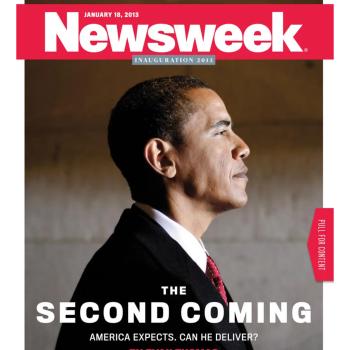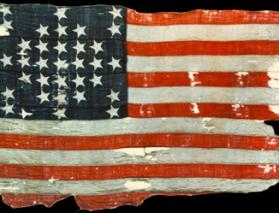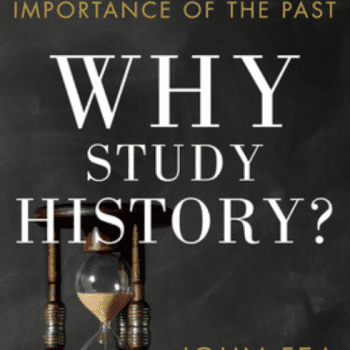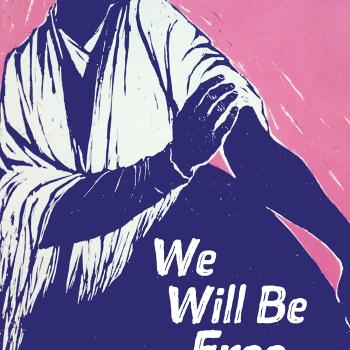For students, at least, the annual highlight of my department’s Intro to History seminar is when we start talking about how movies and TV series treat the past. Even more than last spring’s conversations about methodology and historiography, talking about everything from Titanic to Vikings helped them think more deeply about how we make meaning of the past.
So coming into this summer, I’ve been wondering: What makes for the best historical movies? As a new Civil War film illustrates, the answer to that question is widely debated.
Using the example of Free State of Jones — and two Civil War historians’ divergent responses to it — today I’m going to start a three-part series on how we might evaluate historical moviemaking. I’ll conclude by sharing two favorite examples of the form, but I’ll start by suggesting four criteria — two today, two next week.
1. Is the historical movie entertaining?
We shouldn’t go too far without first underlining that histories and historical movies are different literatures. Both attempt to make meaning of the past, so both are fundamentally acts of interpretation. But as they interpret, say, what happened in a Mississippi county whose disenchanted citizens revolted against the Confederacy in 1863, historians and filmmakers necessarily go about their task in fundamentally different ways.
First, historians are bound by a rule that does not restrain filmmakers — nor playwrights, novelists, short story writers, poets, painters, etc. As my students read in Robert Tracy McKenzie’s The First Thanksgiving, “The historical evidence that survives constitutes a boundary that the historian can’t cross without leaving the domain of history for the realm of historical fiction” (p. 27).
Or as he put it more recently, in a rather mixed review of Free State of Jones:
History is not the past but an argument about the past, ideally grounded in logically compelling historical evidence. Historians don’t discover the past “as it actually was” in the archives; we do our best painstakingly to recreate it, weaving interpretations that are always imperfect and always debatable. Any movie “based on a true story” is similarly offering an interpretation, with the difference that there won’t be footnotes and a bibliography; we’ll be invited to accept the interpretation on faith.
Filmmaker Gary Ross reportedly devoted years of historical research to his script, leading New York Times critic A.O. Scott to laud him for directing “with blunt authority and unusual respect for historical truth.” But McKenzie points out that Ross departs in minor and major ways from the historical record — for example, by wildly overstating the scale of battles fought by Newton Knight and his followers.
(I hasten to add that I haven’t yet seen Free State of Jones. Tracy McKenzie is an expert on this period in American history, not to mention one of my favorite historians, and I’m going to proceed under the assumption that his summary is accurate. But feel free to correct me in the comments if you’ve seen the film and think something is off.)
McKenzie allows that such “inaccuracies probably help to make the movie more entertaining.” But that doesn’t allay his fear that “our entertainment-obsessed culture will only take the past seriously when it is packaged in two-hour-length segments of gripping entertainment.”
It’s an important caution, and one reason that historical movies and histories need to be in conversation with each other. (More on that next week…) But we can’t hasten past this fact: historical or not, any good feature film does need to be entertaining, in ways that aren’t required of histories published by tenured academics through nonprofit presses. It does need to be “gripping” — and moving, evocative, engrossing, and more. (And yes, it needs to take much less time to complete than a historical monograph.)
We tend to think of “entertainment” in terms of its second Webster’s definition: “to provide amusement,” to serve as a fleeting diversion that distracts us from weightier concerns. If that’s all a historical film does, it won’t meet most of my other criteria. But to entertain is also “to have people as guests,” and I think the two meanings converge in a well-done historical movie, since it diverts our attention from our world by inviting us into another — perhaps in ways that an academic history cannot.
2. Is it truthful?
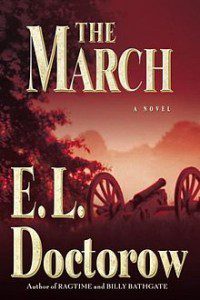 The writer E.L. Doctorow, whose last great novel was also set during the Civil War, once described the difference between his profession and mine in this way: “The historian will tell you what happened. The novelist will tell you what it felt like.” I think that’s also true of the difference between a historian and a historical filmmaker.
The writer E.L. Doctorow, whose last great novel was also set during the Civil War, once described the difference between his profession and mine in this way: “The historian will tell you what happened. The novelist will tell you what it felt like.” I think that’s also true of the difference between a historian and a historical filmmaker.
“What happened” is not inconsequential for any historical movie that, like Free State of Jones, claims to be “based on a true story.” But the first two words in that phrase are important. (The Coen Brothers were probably having some fun with the self-importance of docudramas by starting Fargo with the bald-faced claim, “This is a true story,” when it was actually based on one.) And we often get so caught up in gauging whether or not a film accurately communicates this facet of the past that we lose sight of the filmmaker’s overriding commitment to help us understand “what it felt like.”
This doesn’t mean that historians do wrong to point out inaccuracy in such movies and suggest complementary reading that will provide a better understanding of “what happened.” But ultimately, filmmakers and novelists are after a different kind of truth than historians.
I do think it’s reasonable to expect verisimilitude. Put negatively, a lesser historical film will tend to ring false less because it condenses a timeline or overstates a character’s role than because something about the acting, writing, costuming, sets, etc. will be anachronistic or otherwise fail to evoke a sense of what it felt like to live in that place among those people at that time.
Put positively… Well, see Philip’s recent review of The Witch: “As a historical vision, this is as close to perfect as you get. It may actually have been filmed by using a time machine to visit Connecticut in 1635.”
Next week: two more criteria — and how historical movies and histories can be in conversation with each other.




